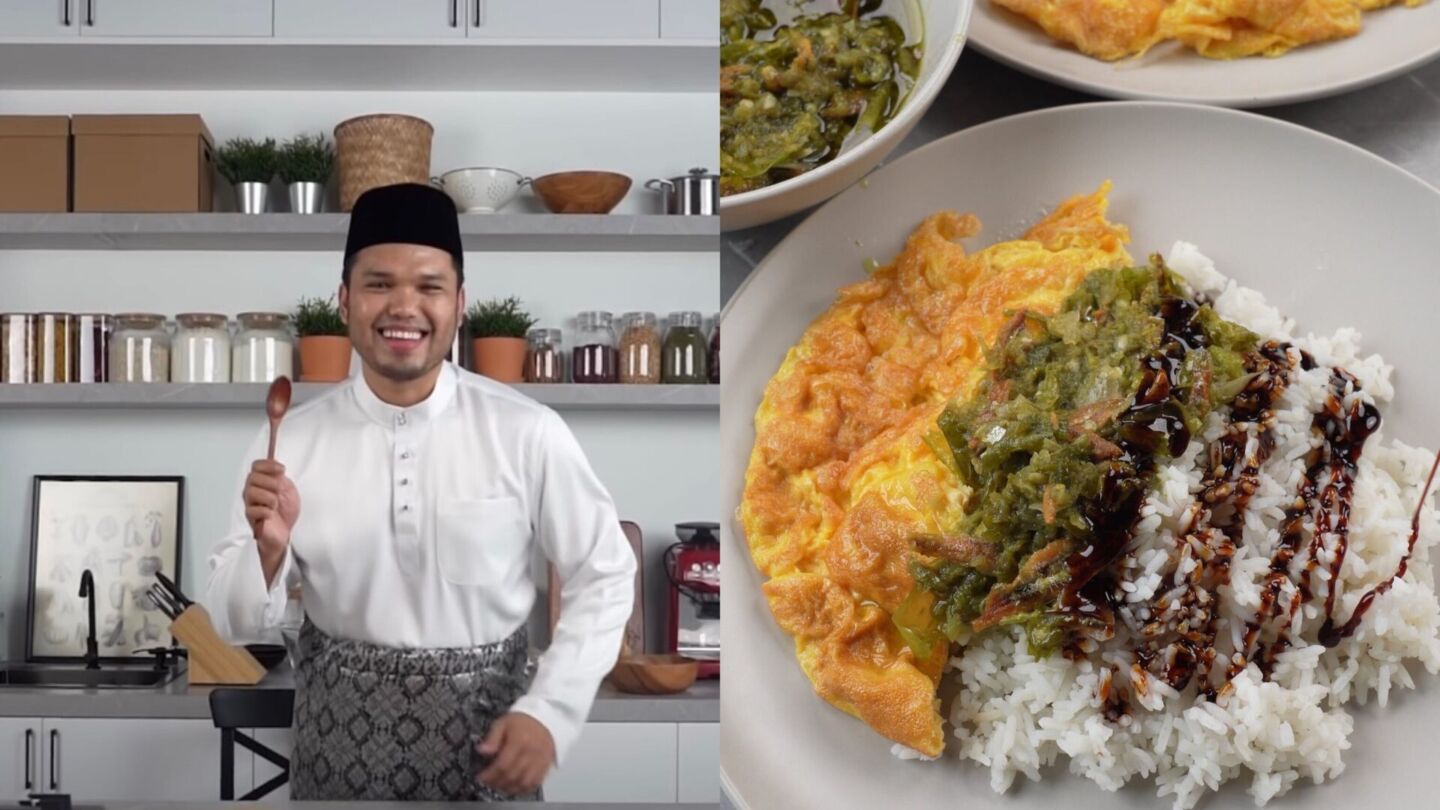Over the weekend, a drama ensued on Twitter after medical health professional Dr Rafidah Abdullah cautioned food content creator, Khairul Aming, over the usage of cooking oil in one of his recipes. She had also advised him to produce more “healthier” meals for the sake of Malaysians’ health.
“Salam KhairulAming, I hope your future recipes can be healthier. There’s too much oil in this recipe of yours. Fried stuff is not good. I hope you can be more aware of the problems Malaysians face. We do not want their health to get worse or else the country will collapse,” she said in a tweet on Friday.
Her comment riled up internet users who slammed her for the unwarranted two cents which they said was not necessary as the 30-year-old cook is not responsible for people’s diet.
Khairul Aming is a Malaysian food content creator and social media influencer.
He is known for his opening line “Hey, what’s up guys?” in all his cooking videos and has gained a significant following on various social media platforms, including Instagram and TikTok, for his food-related content.
For the past six years during Ramadan, Khairul has produced an online recipe series titled ‘30 Hari 30 Resipi’. In it, he features a range of savoury dishes, desserts, and drinks that one could make during the holy month.
View this post on Instagram
The dish that started it all
This annual series has become a huge favorite among Malaysians who look forward to seeing what Khairul has in store for them.
Dr Rafidah was commenting on his ninth-day recipe where he made green chili anchovies with omelet.
However, some agreed with her statement and said that Khairul could consider healthier ingredients if he wanted. They opined that those against what the medical professional said were just fanatics and could not handle the truth.
Don’t come for my food
A few days later, Khairul took it upon himself to address the matter that was pointed out by Dr Rafidah.
“Firstly, as someone who used to be obese, I believe that you can eat whatever you want, as long as you eat it in moderation. I have tried avoiding local food in my diet and that ruined my progress because I craved for it even more,” he said in a video posted on Twitter.
“Secondly, I cannot alter the ingredients of these dishes simply because it would not taste as nice as the original recipe,” he continued.
Khairul also made a good point when he highlighted that people only realised the amount of cooking oil used in his dishes because they could see it with their own eyes.
“But if you bought your food from a restaurant which probably uses the same amount of oil, you probably won’t be as concerned because you don’t see how much oil is being used,” he said.
While it is true that Malay dishes can sometimes be a little too hearty, one Singaporean writer argued that the Nusantara food is not the culprit for one’s health woes in the region.
Malay food and its bad rep
Khir Johari, author of The Food of Singapore Malays: Gastronomic Travels Through The Archipelago book said socioeconomic factors may have led some modern-day Malays to adopt unhealthy food choices and lifestyles, but he said traditional Malay diets were based on preventing illness and maintaining health, and included a vast array of medicinal foods.
According to Khir, even though dishes like nasi lemak may contain fried meat, vegetables remain an essential component of Malay cuisine.
In fact, Malay cuisine includes a diverse array of boiled, steamed, grilled, and soup dishes that prominently feature vegetables. Khir also mentioned that a typical Malay home-cooked meal usually consists of rice, fish, vegetables, and condiments like sambal. Sounds pretty balanced to me.
Meanwhile, I personally don’t think that other people should be held responsible for one’s eating habits.
Under the influence
Yes, food content creators can undoubtedly influence people’s eating habits, but it is unfair to hold them entirely responsible for those habits. Doing so would mean that every fast-food restaurant in the country could be shut down or sued since most of us have likely been tempted to indulge in fried chicken nuggets in the middle of the night due to heavy marketing.
At the end of the day, it is up to the individual to decide what and how much they eat.
People have different dietary needs and preferences, and they should be able to make informed decisions based on their own circumstances and knowledge.
Besides, who has time to copy Khairul’s exact 30-day recipe plan every day anyway? Sure I’ll make his green chilli anchovies once or twice but cooking whatever he puts out every day and then blaming an influencer? I have better judgment than that.





Reader Interactions